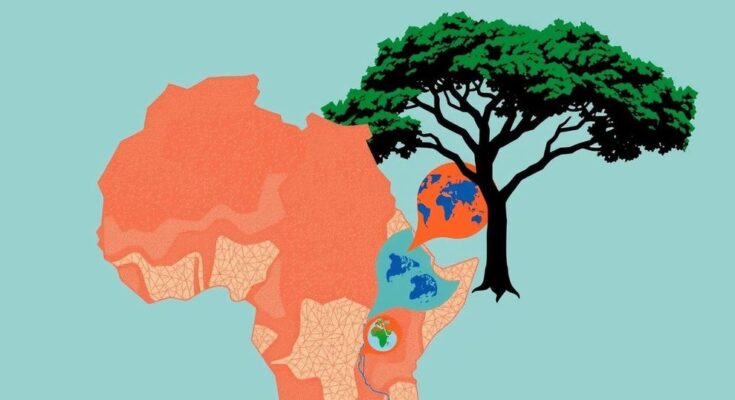COP29 revealed a stark gap for African climate financing, with a demand of $1.3 trillion unmet, resulting in a mere commitment of $300 billion annually, leading to significant discontent among African leaders. Issues arose from geopolitical tensions, fossil fuel lobbying, and unclear financing terms, which undermine Africa’s capacity to adapt to climate challenges. The projected financial needs and proposed agreements raise concerns about the effectiveness of the financing pledges, necessitating urgent action from the global north.
The COP29 conference highlighted a significant shortfall in climate finance for Africa, where the continent sought $1.3 trillion annually from developed countries to aid in climate adaptation. However, only $300 billion per year was agreed upon, which falls catastrophically short of what is needed. The African delegation expressed disappointment, pointing to the insufficiency of the fund in addressing the immediate and future climate challenges they face. The conference also failed to secure sufficient commitments regarding funding sources, raising concerns about the nature of the financing, particularly regarding loans versus grants. Moreover, geopolitical tensions and fossil fuel interests influenced negotiations, undermining Africa’s climate agenda while essentials for energy transition remained unmet, impacting global climate strategies.
The 29th Conference of the Parties (COP29) to the United Nations Framework Convention on Climate Change aimed to address global climate financing, particularly focusing on African nations’ needs. African leaders entered the conference with a unified demand for $1.3 trillion annually, recognizing the financial burden their nations carry in combating climate change. Despite agreement on the necessity of enhanced funding, actual commitments made fell drastically below the projected needs, reflecting broader systemic issues in climate finance and geopolitical dynamics that weaken Africa’s negotiated position.
The outcomes of COP29 reiterated the significant gap between the financial commitments made to Africa and the actual requirements needed to combat climate change effectively. The insufficient financing parameters and unresolved questions about the nature of the proposed funds highlight the necessity for immediate and substantial commitments from developed nations. Moving forward, Africa holds strategic leverage over essential resources necessary for the energy transition and must utilize this to demand equitable climate financing.
Original Source: www.downtoearth.org.in




